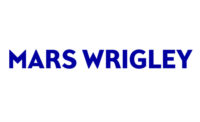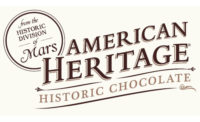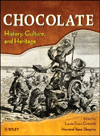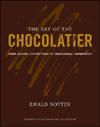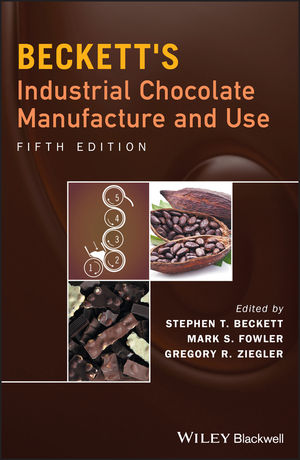Mars Wrigley has awarded the Forrest E. Mars, Jr. Chocolate History Research Grant to 10 educational and cultural institutions across the United States.
Winners were announced at a virtual gala of the Heritage Chocolate Society on July 13. The Heritage Chocolate Society seeks to further the study of chocolate's rich history and its impact on past and present culture in the Americas. Since 2013, there has been a total of $372,000 in grant funds awarded.
"This year we are awarding an unprecedented $100,000, double the amount given last year, in grant funds to 10 different historic, research and community organizations for projects dedicated to deeper discovery into the influence of chocolate on global heritage and culture," said Gail Broadright, director of premium brands: sales, marketing and ux. "We believe this year's winners will provide immersive educational experiences that bring these chocolate stories to life and preserve them for future generations, shaping a world that is connected, caring and celebratory."
Mars Wrigley awarded grants to the following:
Stratford Hall (Stratford, VA): Grant funds will be used to support the development and execution of two educational programs comprised of lectures and cooking demonstrations from African American chefs and historical interpretors, focusing on the intersections of slavery, chocolate, and American cuisine. These programs will be held at Stratford Hall plantation, which was home to four generations of the Lee family and hundreds of enslaved Africans and African Americans.
St. Lawrence University (Canton, NY): Grant funds will be used to deliver an interdisciplinary educational and experiential course of study entitled Chocolate Passport. The course will be offered to undergraduate students and will address the traditional, spiritual and medicinal uses of Theobroma cacao, its agricultural production, the global market for chocolate, ethics and sustainability of this market, culinary uses of chocolate, the chemistry of chocolate, and its role in art of all cultures.
New York Historical Society (New York, NY): Grant funds will be used to support the research, development, and delivery of two chocolate history program series, with a focus on the evolution of baking with chocolate and confectionary traditions in American history. The first series will highlight chocolate history and traditions as part of our July 4, Veterans Day, Martin Luther King, Jr. Day, and President's Day celebrations. The second, Living History @ Home: NYC <3 Chocolate, will be a new series that will focus on chocolate recipes that relate specifically to New York City history.
Boys & Girls Club of Palm Beach County (Palm Beach, FL): Grant funds will be used to create a program for local teens entitled Chocolate's History Through Culture and Family. Teens will research the generational path of chocolate recipes from their own families and use the recipes to build family trees while gaining insight into their personal identities. Additionally, participants will prepare a different family recipe each week and participate in a lesson from "Great Moments in World History…Where Chocolate Sparked Discovery and Innovation," an educational resource guide created by National Geographic in partnership with Mars Wrigley.
The Fort Ticonderoga Association (Ticonderoga, NY): Grant funds will be used to research chocolate consumption within peacetime British military families, including chocolate's supply and context within daily life. They will utilize this research on chocolate consumption to expand daily interpretive cooking and culinary programs, highlighting connections to the present day experience of military families.
The Senator John Heinz History Center (Pittsburgh, PA): Grant funds will be used for a multi-layered research project utilizing their History Center and partnering site, Fort Pitt Museum, to uncover the ways that chocolate forged pathways for work and identity in this region over centuries. From the city's earliest roots at the fort to the ethnic groups that developed new communities in Pittsburgh, they believe that the history of chocolate can be used as a way to draw visitors into an understanding of how groups worked and developed their identities in this region.
Boston University (Boston, MA): To commemorate and celebrate Boston's long history of chocolate, grant funds will be used to bring together academic research and culinary practices to explore and document the story of chocolate in Boston through an event hosted by the Boston University Gastronomy Program, Programs in Food and Wine and the Fine Cacao and Chocolate Institute (FCCI). There will also be robust online programming to broadly share this scholarship and invite a continuation of the discussion.
Genesee Country Village & Museum (Mumford, NY): Grant funds will be used to facilitate year-round chocolate-themed educational programming and research based on diversity, equity, accessibility, and inclusion. They will provide virtual access to chocolate-themed educational programming, partner with local community-based organizations to increase public access and incorporate more diverse perspectives into their programming and focus research efforts on linking the local and culinary history of chocolate to indigenous, Latinx, and other groups.
The Betsy Ross House (Philadelphia, PA): Grant funds will be used to create a women's history-focused field trip program featuring their signature historic chocolate-making program. The program would be offered for free to students in the Philadelphia School District (PSD) for the 2021-2022 school year and would also be offered as a paid field trip experience for students outside the PSD, both as an in-person field trip and a prerecorded virtual field trip option.
Virginia Museum of History and Culture (Richmond, VA): A special grant was presented to Virginia Museum of History and Culture during the virtual gala celebration last evening for educational chocolate programming.
Mars Wrigley plans to continue to award grants on an annual basis and the submission period for the 2022 awards begins on Aug. 23, 2021 at AmericanHeritageChocolate.com.
American Heritage Chocolate is a line of artisanal chocolate products developed from ingredient lists from the 1750s. Developed by Mars Wrigley, American Heritage Chocolate helps illuminate the stories of our collective history — from chocolate's Mesoamerican roots, dating back more than 3,500 years, to its place in the lives of European and Colonial American families, to its role in popular culture today. While its rich history provides context for this intriguing global narrative, it is chocolate's future, and its story of connection, that brings people together, spanning cultures, time and place, that inspires the Forrest E. Mars, Jr. Chocolate History Research Grant to push the boundaries of discovery.




